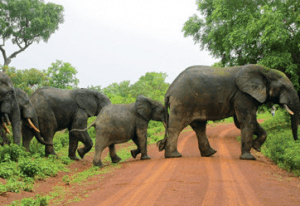Zimbabwe wants to pull out of CITES due to restrictions in ivory trade
 Zimbabwe is considering pulling out of the Convention on International Trade in Endangered Species of Wild Fauna and Flora (CITES) in order to fully benefit from its conservation of natural resources, President Emmerson Mnangagwa has said.
Zimbabwe is considering pulling out of the Convention on International Trade in Endangered Species of Wild Fauna and Flora (CITES) in order to fully benefit from its conservation of natural resources, President Emmerson Mnangagwa has said.
Speaking at the ground-breaking ceremony for the upgrading of a 6.5km stretch along Harare-Chirundu Highway on Monday, Mnangagwa said Zimbabwe would express its reservations before pulling out of the body, if need be, the state-controlled Herald newspaper reported Tuesday.
At its 18th meeting of the Conference of the Parties to CITES in Geneva this week, the body rejected a proposal by Southern African Development Community (SADC) countries to open trade to clear existing stockpiles of ivory, with Zimbabwe sitting on $600 million worth of stock.
The President said the clearing of the ivory stockpile would help conservation efforts through procurement of equipment and fences for buffer zones to curtail human-wildlife conflict.
“We are sitting on ivory stockpiles worth $600 million. It’s a lot of money we can use for big projects.
“Our wild animals are being discussed in Geneva (at the ongoing CITES summit), an irrelevant place to the animals. We now know what to do about the issue,” he said.
The president said it was unfair that Zimbabwe carried the burden of conserving its wildlife, but did not benefit from the resource.
Zimbabwe is battling to keep its elephant population which stands at 84, 000 against a carrying capacity of around 56,000.
“Just the day before Sunday, they were saying we cannot sell products from our wildlife, but we rejected that.
“We cannot be denied such a privilege by people who no longer have the elephants. They now know elephants from pictures and films,” he said.
Mnangagwa said Zimbabwe was looking forward to cooperating with Japan in promoting sustainable wildlife management.
CITES rejected the proposal by Zimbabwe, Namibia and Botswana to open the trade of ivory to clear existing stockpiles, alleging that it would encourage poaching and reverse gains in wildlife management.
The countries have always argued that they need the funds to help protect the animals from poaching and enhance conservation efforts.
Source: GNA
